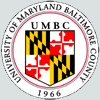| ||||||||||||||||||||||
Tips:  Range on the Protein: Protein ID Protein Position Domain Position:  No Conserved Features/Sites Found for TAN No Conserved Features/Sites Found for TAN
|
|---|
Weblogos are Copyright (c) 2002 Regents of the University of California
| DMDM_info@umbc.edu | 1000 Hilltop Circle, Baltimore, MD 21250 | Department of Biological Sciences | Phone: 410-455-2258 |




 Telomere-length maintenance and DNA damage repair. ATM is a large protein kinase, in humans, critical for responding to DNA double-strand breaks (DSBs). Tel1, the orthologue from budding yeast, also regulates responses to DSBs. Tel1 is important for maintaining viability and for phosphorylation of the DNA damage signal transducer kinase Rad53 (an orthologue of mammalian CHK2). In addition to functioning in the response to DSBs, numerous findings indicate that Tel1/ATM regulates telomeres. The overall domain structure of Tel1/ATM is shared by proteins of the phosphatidylinositol 3-kinase (PI3K)-related kinase (PIKK) family, but this family carries a unique and functionally important TAN sequence motif, near its N-terminal, LxxxKxxE/DRxxxL. which is conserved specifically in the Tel1/ATM subclass of the PIKKs. The TAN motif is essential for both telomere length maintenance and Tel1 action in response to DNA damage. It is classified as an EC:2.7.11.1.
Telomere-length maintenance and DNA damage repair. ATM is a large protein kinase, in humans, critical for responding to DNA double-strand breaks (DSBs). Tel1, the orthologue from budding yeast, also regulates responses to DSBs. Tel1 is important for maintaining viability and for phosphorylation of the DNA damage signal transducer kinase Rad53 (an orthologue of mammalian CHK2). In addition to functioning in the response to DSBs, numerous findings indicate that Tel1/ATM regulates telomeres. The overall domain structure of Tel1/ATM is shared by proteins of the phosphatidylinositol 3-kinase (PI3K)-related kinase (PIKK) family, but this family carries a unique and functionally important TAN sequence motif, near its N-terminal, LxxxKxxE/DRxxxL. which is conserved specifically in the Tel1/ATM subclass of the PIKKs. The TAN motif is essential for both telomere length maintenance and Tel1 action in response to DNA damage. It is classified as an EC:2.7.11.1. No pairwise interactions found for the domain TAN
No pairwise interactions found for the domain TAN









